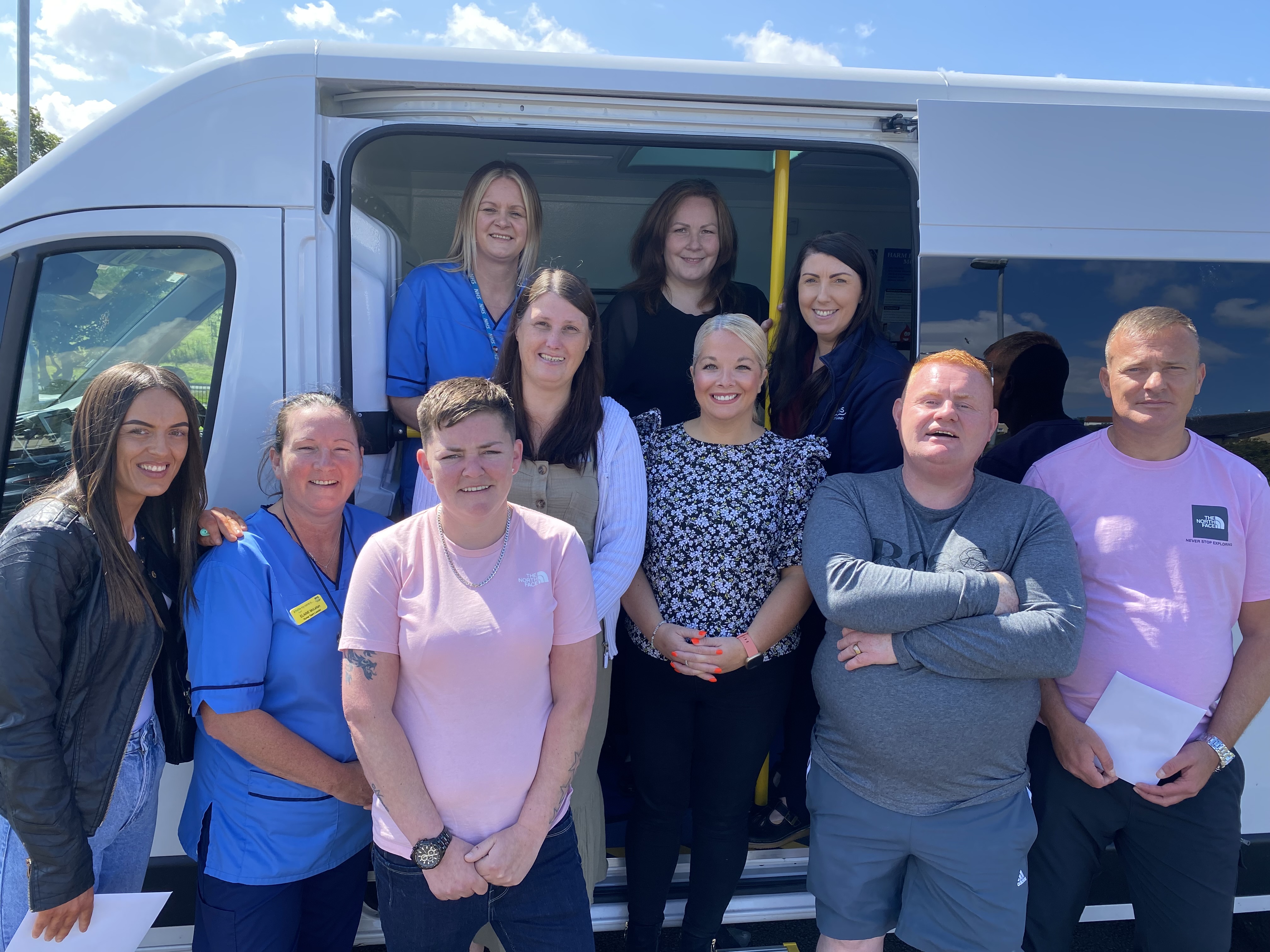Mobile support unit reaches the heart of communities affected by drug deaths.
Published 26 August 2022
Addiction support services will tour across West Dunbartonshire in a bold new bid to reduce drug-related deaths and harms in the area.
The new Drug Harm Reduction Mobile Unit has been launched with the mission to take support into the heart of communities where losses have occurred.
Last year 28 people lost their lives in West Dunbartonshire due to overdose or other conditions related to drug abuse, one fewer than the previous year.
But West Dunbartonshire Health and Social Care Partnership is working to reduce this further by proactively engaging with drug users in their own community, offering basic medical care and practical advice on how to be safer when using drugs.
Providing clean needles, wound care, prescribing antibiotics and the life-saving drug Naloxone – which reverses the effect of opiate overdose – the mobile unit increases accessibility to treatment for people who otherwise may not seek help from a GP or hospital.
Additionally, the confidential service aims to establish trust with the people they help and in time encourage them to enter a treatment programme to abstain from drugs altogether.
Councillor Michelle McGinty, chair of West Dunbartonshire HSCP, said: “We have a great coverage of addiction services across the area but we are looking to increase it – and by going into the heart of the community to meet the people that we need to reach is a massive step forward.
“It’s about much more than just getting clean needles. At this unit people can have their wounds tended to or access antibiotics to prevent infection that would have otherwise got worse if they didn’t want to turn up at the doctor or A&E.
“Every drug-related death is a tragedy and our community has suffered far too much already.
“As a Partnership we are continuing to explore every option to prevent further loss and heartbreak for families, and I believe the introduction of this mobile harm reduction unit is a significant moment.”
Councillor McGinty and fellow HSCP Board member Councillor Clare Steel visited frontline service providers to learn more about the help that the new unit offers.
They explained that the Harm Reduction ethos focuses on gaining trust by keeping visits informal with a cup of tea and something to eat while they assess the individual’s need.
While many of the people visiting the mobile unit will be substance users, the team will be able to give them appropriate advice of how to do so more safely to reduce harm or death.
Removing barriers and building trust is one of the key factors to encourage people to accept the help of Addiction Services and get involved in a treatment programme.
Some programme participants who have already taken that step to recovery joined the Councillors on their visit to the new mobile unit – and they believe it will make a positive difference to keeping people safe.
Brian, from Bellsmyre, said: “To have this in housing schemes is crucial because a lot of people don’t want to be seen going to health services in the town. There’s a lot of shame and stigma.
“Instead of having that humiliation of walking into a pharmacy to get clean needles, it was easier using a second-hand one.
“Last year I had an abscess and I knew I should go the doctors but I kept putting it off until it burst inside me. Even then I still didn’t want to go to the hospital because I was worried they might tell the police or social work.
“So to have something like this which is more anonymous and on your doorstep will make a big difference to keeping users safer.”
Stephanie from Dumbarton added: “This shows that people are recognising that we have a massive problem here and something different has to be done to address it.
“People can’t just be hidden away or isolated like a leper. If you feel you’re being judged and there’s no one to talk to the easiest thing is to just keep on using rather than trying to get help to stop.
“It’s good that we’re looking at it honestly now. It’s happening, we can’t pretend that people aren’t using drugs so we need to face it down and make sure that they are doing it as safely as possible because too many people are dying.”
